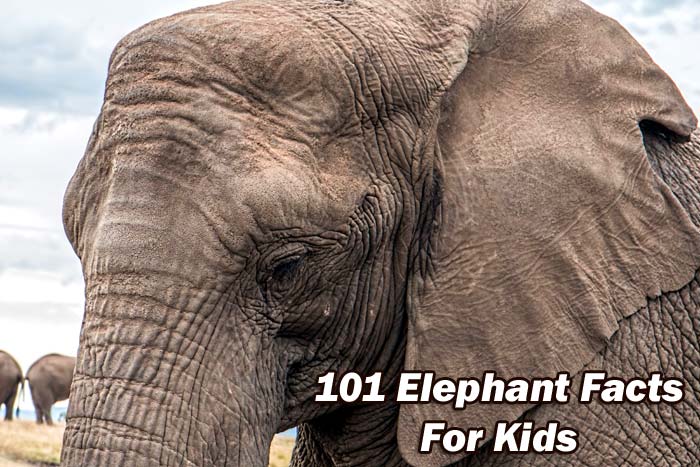
Elephants are Earth’s largest, heaviest, and most beautiful animals. Here are 101 elephant facts for kids categorized, namely anatomy facts, family & reproduction facts, diet facts, social life facts, ‘sad-but-true’ facts, and including some unusual fun facts too!
Elephant Anatomy Fun Facts
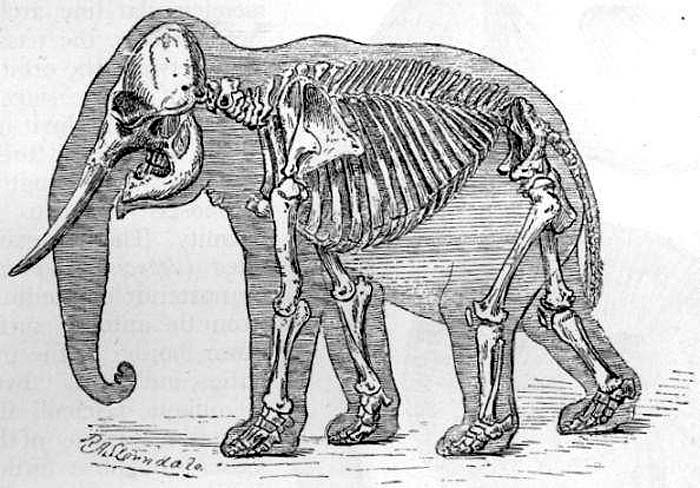
- The largest elephant in the world weighed 24,000 pounds!
- An elephant heart can weigh 20 kg!
- Elephants have bad eyesight.
- An ear of a male African elephant weighs over 45 kilograms!
- The brain of an adult elephant weighs around 4.5 kilograms.
- An elephants trunk is also called a proboscis.
- A trunk is a fusion of the upper lip and nose.
- Elephants have the largest brain compared to all land mammals.
- Other than humans, elephants are the only mammals that have chins.
- The trunk of an elephant weighs around 181 kg.
- Female elephants stop growing when they are twenty years old.
- Male elephants keep on growing all their lives.
- A fully-developed adult bull elephant can weigh as much as three minivans, 80 well-built humans, 12 large horses, or 1500 cats!
- Calves sometimes suck their trunks just like babies suck their thumbs.
- An elephant’s ear flaps contain a lot of blood vessels called capillaries.
- An elephant’s dominant tusk is called the master tusk.
![]()
Elephant Family / Reproduction Facts
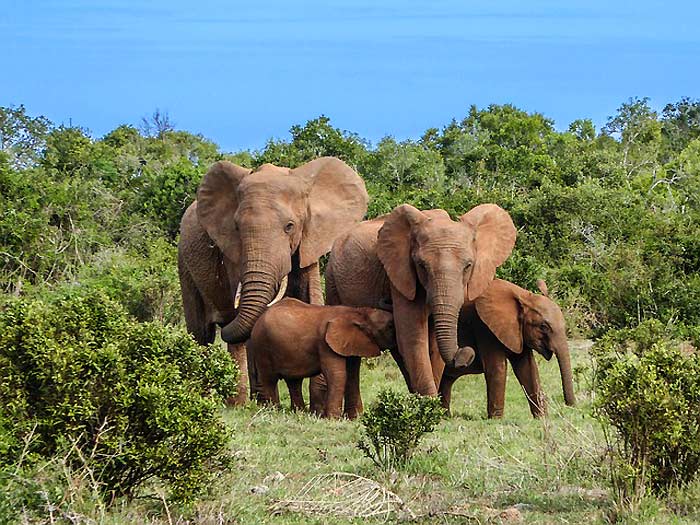
- At birth, an elephant weighs 104 kg.
- Elephants can give birth to young every 3-4 years.
- Unlike humans, female elephants can have babies until age 50.
- Baby elephants weigh around 22 kg.
- The incubation period of an elephant is 22 months.
- Newborns can stand up quickly after they are born.
- When elephants are born, they are blind.
![]()
Elephant Diet Facts
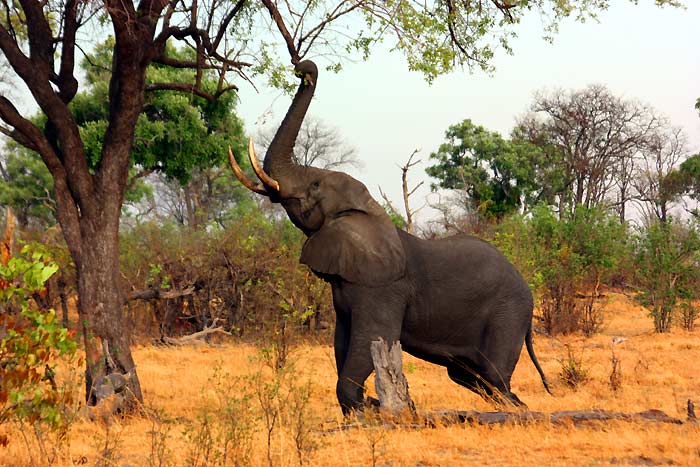
- An elephant can eat 224 kg of food daily.
- According to Elephant studies, elephants spend 16 hours a day just eating!
- Elephants eat 50 tons of food annually.
- Elephants do not like peanuts (the cartoons are wrong).
- Elephants love to drink a lot of water.
- Adult elephants need up to 160 L of water daily.
- An elephant trunk can pick up a single grain of rice!
- Elephants love bananas.
- Elephants know if a carcass is an elephant carcass.
![]()
Elephant Unusual & Fun Facts
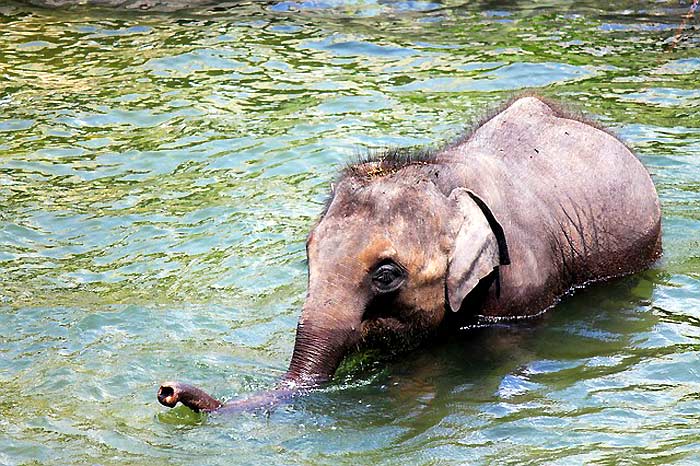
- Elephants are the only land mammals that cannot jump.
- Elephants can swim using their trunk as a snorkel.
- Rock hyraxes are the only relative of elephants that are not extinct.
- Asian elephants do not run.
- A blue whale’s tongue weighs about the same as a female African elephant.
- Elephant twins are uncommon.
- Elephant Appreciation Day is on September 22.
- Elephants sleep 2-3 hours daily.
- One of the most expensive brands of coffee is made from elephant dung.
- Elephants can travel up to 90 miles per day.
- Elephants are keystone species in their environments.
- Elephants are endangered species.
- In 2000, around 15,000 elephants worked for humans.
- A popular elephant movie is Dumbo.
- Some elephants work at circuses and perform tricks.
- Elephants can give tuberculosis to humans.
![]()
Elephant Sad-But-True Facts
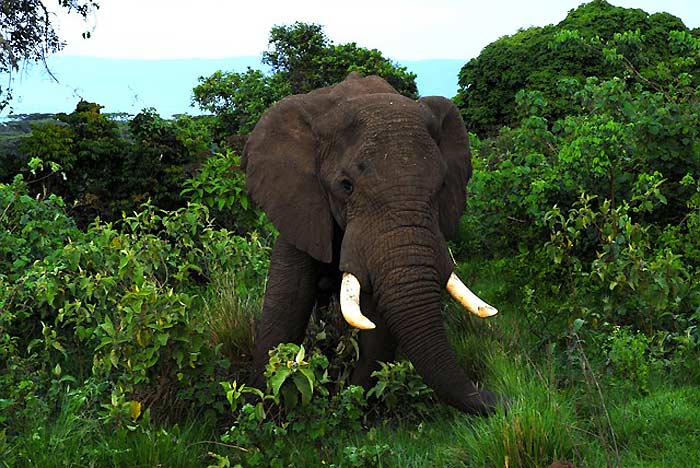
- Elephants are poached for their ivory tusks (ivory is used to make jewelry and other things).
- In Africa, ninety-six elephants die a day.
- Thomas Alva Edison electrocuted an elephant in 1903.
- Around one hundred elephants are killed daily to get their ivory.
- It is illegal to trade ivory today, but people continue to kill elephants.
- Mothers sometimes stay with their dead calves for days.
- Elephants have been seen touching the dead with their feet lightly.
- Sometimes, elephants take the bones of the dead and carry them with them.
- They don’t do this with other animals.
- Other dead animals are completely ignored by elephants.
- Some of the time, they bury the body of the dead.
- Elephants sometimes bring food to dying or weak elephants.
- If an elephant is injured or sick, elephants in the family unit try to help it.
- If an elephant cannot walk, other elephants use their tusks and trunks to move it.
- If an elephant can walk but is still sick or injured, the other elephants slow down so it can catch up.
- Elephants are also poached for their hide and meat.
- Deforestation causes health issues to elephants.
![]()
Elephant Special Behavior Facts
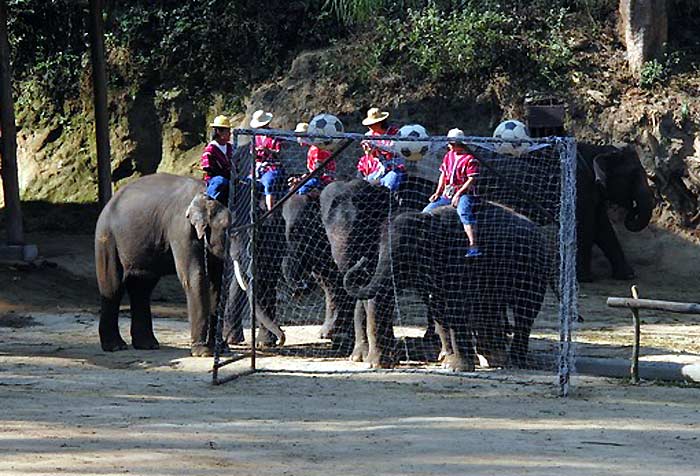
- Elephants can also communicate with each other by touching.
- Elephants can laugh and cry.
- To communicate, elephants purr (like cats).
- Elephants know they are looking at themselves when they see a mirror.
- Elephants have emotions.
- Elephants are not scared of mice, unlike myths which say so.
- Elephants are scared of bees and ants.
- Elephants cannot gallop.
- Elephants grieve when someone they know dies.
- Elephants can recognize someone they saw years ago.
- An elephant in a South Korean Zoo can talk five words in Korean.
- It looks like elephants know what other elephants are thinking.
- Elephants can hear other elephants trumpet from 8 km away.
- African elephants have the best sense of smell out of all animals.
- Elephants know if other elephants are male or female.
![]()
Elephant Social Life Facts
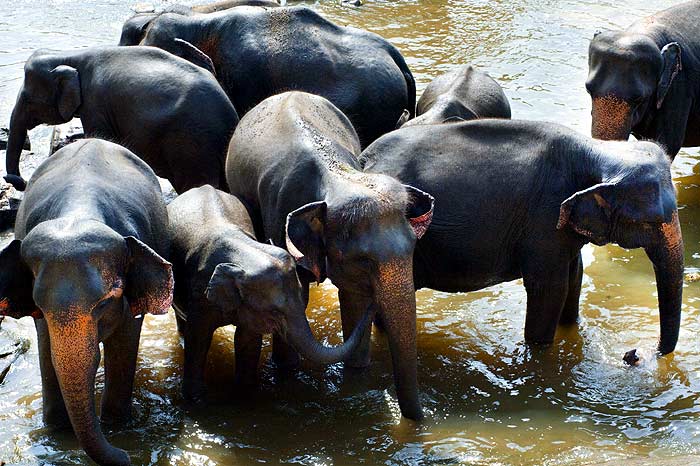
- Family units are led by the oldest female in the group – not the male.
- A male elephant is called a bull.
- Male elephants are not in family units.
- Males leave their families when they are 10-15.
- A family unit usually has 3-25 elephants.
- Family units become bigger if younger females have calves.
- When a family unit becomes too big, some elephants leave to start their family units.
- Often, family units stay with 1-5 other family units. This is called a bond group.
- If two family unit members die, they sometimes join again to form a single-family unit.
- The leader of the group is called the matriarch.
- When a lot of bond groups have the same home range, it is called a clan.
- The matriarch is usually 40-50 years old.
- Matriarchs greatly help the family unit since they usually know the best water holes and feeding areas.
- Since matriarchs are leaders, they decide when to travel.
- Matriarchs decide when to eat and when to rest.
- Matriarchs lead the family unit until they die.
- After a matriarch dies, the oldest female becomes the new matriarch.
- Sometimes young males go with bulls that leave the family unit.
- Sometimes, after a bull leaves a family unit, it stays with another family unit for several years.
- Usually, the members of a family unit are mothers, calves, and other females that are related to them.
- When family units are walking, calves are in the middle, giving them more protection.
![]()
Cite This Page
APA7MLA8Chicago
BioExplorer.net. (2025, May 27). Top 101 Elephant Facts. Bio Explorer. https://www.bioexplorer.net/animals/mammals/elephant/facts/.
BioExplorer.net. "Top 101 Elephant Facts" Bio Explorer, 27 May 2025, https://www.bioexplorer.net/animals/mammals/elephant/facts/.
BioExplorer.net. "Top 101 Elephant Facts" Bio Explorer, May 27 2025. https://www.bioexplorer.net/animals/mammals/elephant/facts/.













Thank you for this info! This was very helpful and you helped me a LOT!